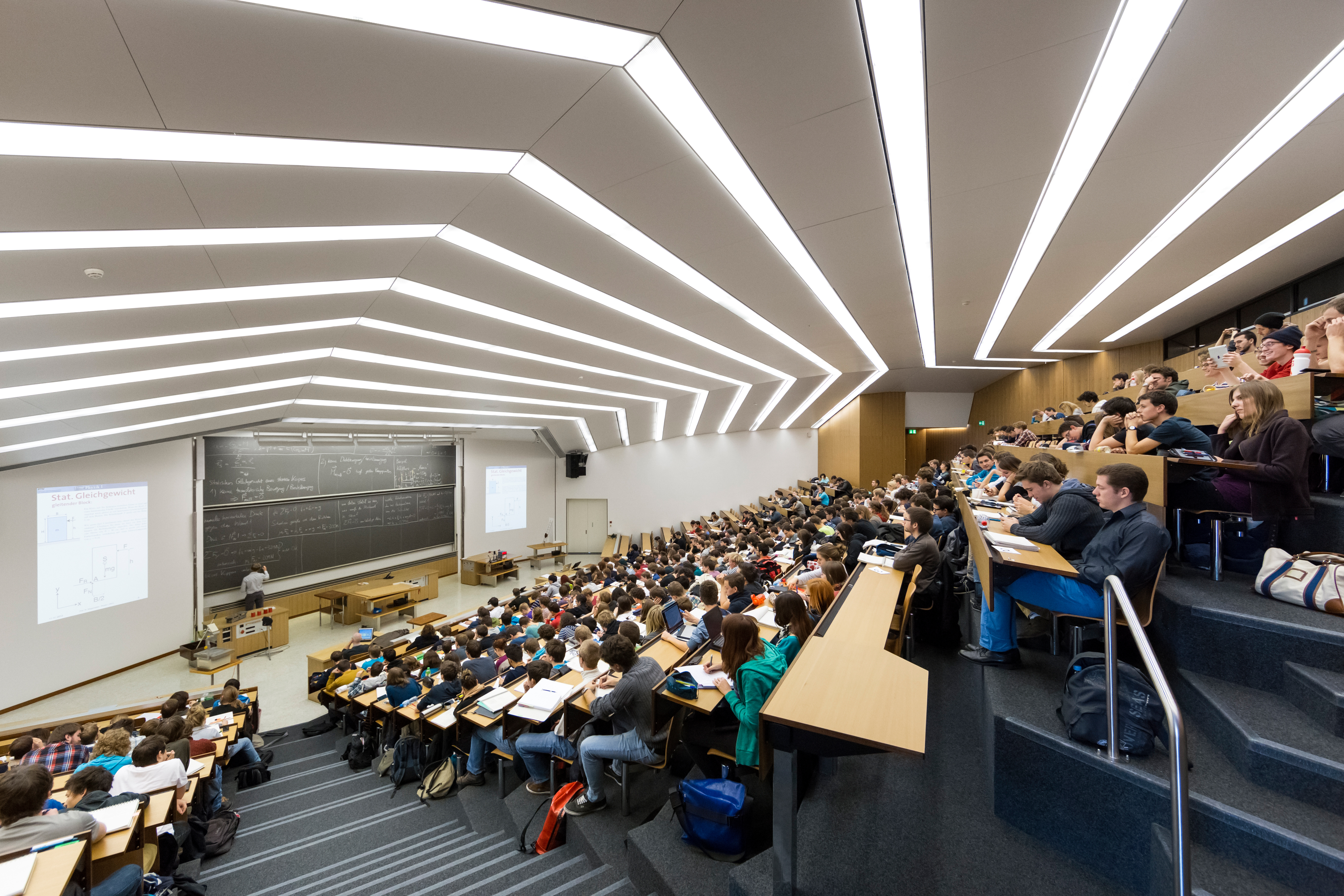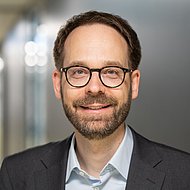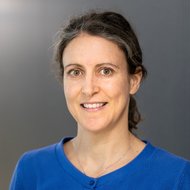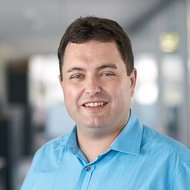At the start of the semester: 3 employees report on their commitment as lecturers at universities

Basler & Hofmann employees spend around 2,300 hours a year teaching at universities, plus preparation time. What motivates the experts to get involved in teaching? How do they remember their student days? We asked Marco Ramoni, Patrizia Truniger and Yves Mondet.
Whether at ETH Zurich, the University of Applied Sciences of Eastern Switzerland (OST) or the Lucerne University of Applied Sciences and Arts (HSLU): if you browse through the curricula at the start of the semester, Basler & Hofmann employees appear as lecturers in various places. They give lectures, supervise project work or lead construction site excursions in a wide range of subject areas - from real estate management and fire engineering to steel construction and transportation planning. What drives them?
Yves Mondet is head of the Structural Safety and Security department at Basler & Hofmann. He teaches Bachelor students at OST as well as CAS students at ETH Zurich and HSLU in earthquake engineering and supervises project, Bachelor and Master theses at OST. Something that was formative for him during his studies: How Prof. Dr. Peter Marti took one to two hours a week to discuss his work during his thesis at ETH Zurich.
What motivates you to get involved in teaching?
Yves Mondet: The very good education is one of the most important things we have in Switzerland. I am very grateful for the excellent teachers, lecturers and mentors I had at school, during my studies and also when I started my career at Basler & Hofmann. I would like to pass some of this on to today's young generation.
Many young people have started their studies this week. What advice would you give the budding civil engineers?
Yves Mondet: Use your time at university to get to the bottom of things. The better you understand the basics and physical relationships, the easier it will be for you to develop suitable solutions in practice. Challenge your lecturers, ask critical questions if what you have been taught is not clear or if you have a different perspective on it.
What do you recommend to students who are about to start their careers this year?
Yves Mondet: The culture of the company is crucial for a successful entry into practice. After all, training continues after completion of the course. Career starters should be closely supervised, for example by discussing and further improving the solutions they have developed with experienced team colleagues.
Originally an environmental scientist, Patrizia Truniger specialized in transportation planning at Basler & Hofmann. Her studies gave her the ability to think analytically. Today, she passes on her experience to students on the Mobility Science (formerly Transport Systems) course at the Zurich University of Applied Sciences (ZHAW).
You teach a block week shortly before the start of the semester and then supervise several projects. How do you reconcile this with your work with us?
Patrizia Truniger: I work 80 percent of the time. I invest the remaining 20 percent in my work as a lecturer. It's important to me that I can look at the students' work in detail so that they can really take something away with them. That is time-consuming. At our company, I often have some downtime in the fall semester, which I make up for during the rest of the year. Our model of annual working hours suits me very well.
What do you take away personally and professionally from your work as a lecturer?
Patrizia Truniger: It's an exciting change for me. I can reflect on my own work through the eyes of the students and their questions. Of course, it's also nice when students contact us for an internship after completing their studies thanks to my lecture or when I meet them again later as transport planners with our clients.
What advice do you give your students for their practical work as transportation planners?
Patrizia Truniger: That you should always critically question what you find. Being able to think analytically and formulate clearly are two crucial skills. Every project brings with it a new situation. There is no one-size-fits-all approach that you can apply. You have to want to do the analysis yourself and develop your own solutions.
Marco Ramoni, Head of Rail Tunnels, was born with an interest in tunnelling. His father and uncle were both miners. The excursions were a particular highlight of his studies. He is therefore all the more pleased that today, as a lecturer at ETH and ZHAW, he can give students an insight behind the scenes of ongoing tunnel construction projects.
Why are you involved in teaching?
Marco Ramoni: From the company's point of view, I contribute to the education of our profession and make us visible as an employer. I'm also close to research, in touch with the latest developments in tunnelling. Personally, I enjoy teaching. It's a good change from everyday life. It gives me the opportunity to do something completely independent of clients and projects. I also have to thank the universities and Basler & Hofmann for giving me a lot of freedom in the way I organize my work.
What is your recipe for success as a lecturer?
Marco Ramoni: I'm considered strict, but fair and very well organized. What I expect from the students also applies to me. Giving a lecture is like telling a story. There are a few funny chapters and a few rather dry ones. If I know that a dry chapter is coming up today, I approach it with extra positive energy so that people don't even realize that it could be boring. And I don't make any compromises. Reading off slides is out of the question for me. I expect attention for that.
Where do you see similarities between studying and working?
Marco Ramoni: The camaraderie. The evenings when we students played Jass together are unforgettable. We were like one big family. I still meet up with some of them today. That shapes you and also helps you in practice. Because as soon as you're in the office, teamwork is the be-all and end-all.
As a leading engineering, planning and consulting company, Basler & Hofmann supports its employees in their commitment to universities. After all, qualified specialists are more in demand than ever. Anyone looking for an expert for a guest lecture is welcome to contact our employees directly or get in touch with HR.



